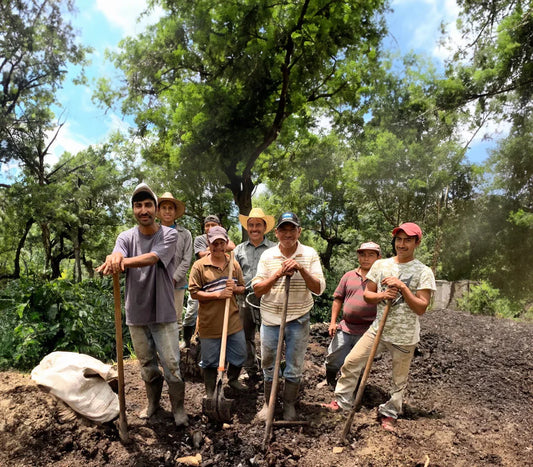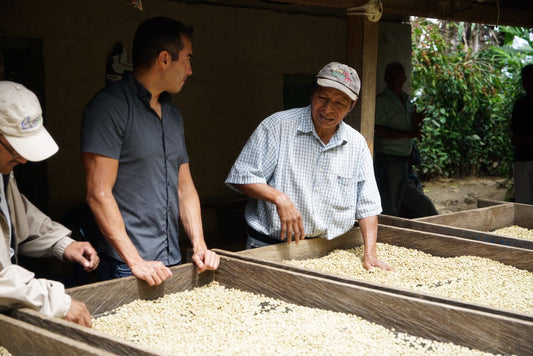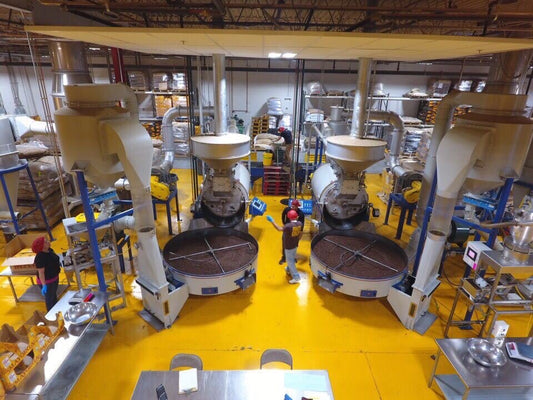
What is specialty-grade coffee?
Breaking down the coffee industry’s key terms.
Not all coffee beans are created equal.
Some are large, some are small. Some are shaped like peas, others are flat.
Some coffee beans have defects, others carry flavors reminiscent of sweet tea and lavender.
Some have a brightness that brings a smile to the face, others so bitter they can make your eyes water.
In short, it is virtually impossible to define a “coffee bean” beyond its basic scientific structure – and even that can vary slightly from one species to the next.
However, in an attempt to create a universal classification and price them accordingly, most coffee beans are generally divided into two broad camps: commodity-grade and specialty-grade.
What is commodity-grade coffee?
If you have ever sipped a cup of instant coffee, it’s likely you’ve tried commodity-grade coffee.
Defined as coffee grown for mass production and trade on the global commodity market, it can usually be recognized by several factors:
- Price: Commodity-grade coffee is usually a lot cheaper compared to other coffees (hence why it is often used in instant coffee). This is due to the lower quality of the beans and the mass production methods used to grow it. Importantly, the focus for commodity-grade farmers is on quantity over quality.
- Flavor: Commodity-grade coffee tends to have a fairly consistent flavor profile, although this can also be a result of the way it is roasted. In general, commodity-grade coffee tends to be simple (rather than presenting complex, subtle flavors in the cup).
- Packaging: From glass jars to large tins, commodity-grade coffee can, in many cases, be spotted a mile off by its packaging. It is also often sold in large bags or bulk containers.
- Certification: To keep down costs, commodity-coffee rarely has any certifications, such as Fair Trade, Rainforest Alliance, or Organic on the packaging. These certifications are often not held by commodity-grade coffee producers because they are expensive and time-consuming.
That said, it is important to note that there is nothing inherently "bad" about commodity-grade coffee. It is a source of income for many small farmers around the world, and it can be a delicious and enjoyable part of many people's daily routine.
However, because commodity-grade coffee is often grown in large quantities, using mass production methods, it is not generally considered to be sustainable. Aggressive exploitation of the land can lead to soil erosion and poor water quality for the local communities.

What is specialty-grade coffee?
Although some tend to use the terms “gourmet” or “artisan” to describe it, specialty-grade coffee has some specific requirements before it can be labeled as such.
Most important is its score on the Specialty Coffee Association scale out of 100. Anything scored 80 and above is officially considered “specialty-grade coffee”. This takes into account a range of qualities, including the following:
- It must be free of defects: The coffee must be clean, free of physical defects and foreign matter, and have a pleasant aroma.
- It must have balanced flavor: The coffee should have a balanced flavor profile, with no single flavor dominating.
- It must have a pleasing aftertaste: The coffee's aftertaste should be pleasant and clean, without any negative flavors.
- It must have a good acidity level: The coffee should have a bright, lively acidity that is balanced with the other flavors in the cup.
- It must have a good body: The coffee should have a full, satisfying mouthfeel.
Coffees that score 80 or above across this criteria are considered to be specialty-grade and, as a result, are generally of a higher quality than commodity-grade coffee.
Because farmers of specialty-grade coffee are generally encouraged to focus on quality instead of just quantity, they tend to receive a higher price for their produce than those who grow commodity-grade coffee.
However, not only is this not always the case, but there are also several misconceptions around the environmental sustainability of specialty-grade coffee, too.
Why direct trade, organic specialty-grade coffee is best
The term “specialty-grade coffee” is often misinterpreted.
Many in the coffee industry assume that it automatically means farmers receive a sustainable price for their coffee and that their land is not being exploited in the way it often is for commodity-grade coffee.
However, the only coffee that ticks both of these boxes, as well as being classified as “specialty-grade” is direct trade and organic.
Direct trade is a scenario whereby intermediaries are cut out of the supply chain, hence leaving a larger share of the profits for farmers. Roasters and farmers connect directly, and often have a personal relationship which allows the roasters to understand the farmers’ genuine needs.
Organic coffee, meanwhile, is coffee produced without the use of fertilizers or pesticides. It prevents the pollution of local water supplies as there are no harmful chemicals that runoff the land. What’s more, many people agree that organic coffee has a richer, more complex flavor than non-organic coffee, due to the care and attention given to the plants during the growing process.
Specialty-grade coffee has become increasingly widespread since the 1990s and, thanks to growing demand among consumers, replaced much of the commodity-grade coffee on offer.
However, it’s worth noting that not all specialty-grade coffee is organic, and not all organic coffee is specialty-grade.
At Mayorga Coffee, we guarantee that all our coffees are not only specialty-grade but also organic and direct trade. We work with dozens of independent coffee farmers in Latin America to ensure they are paid the right price for all their hard work.
Check out our full range of organic specialty-grade coffees today.


